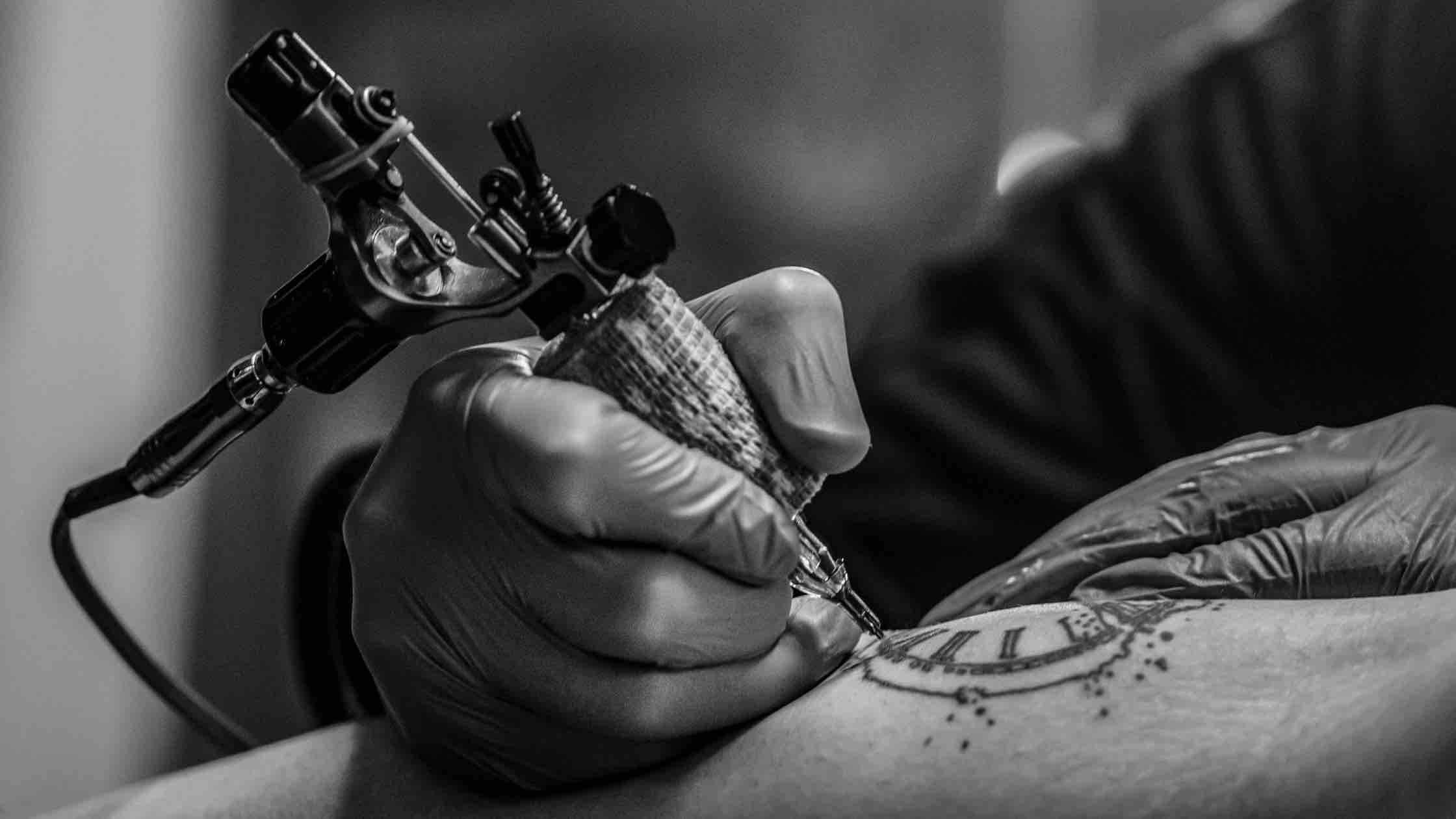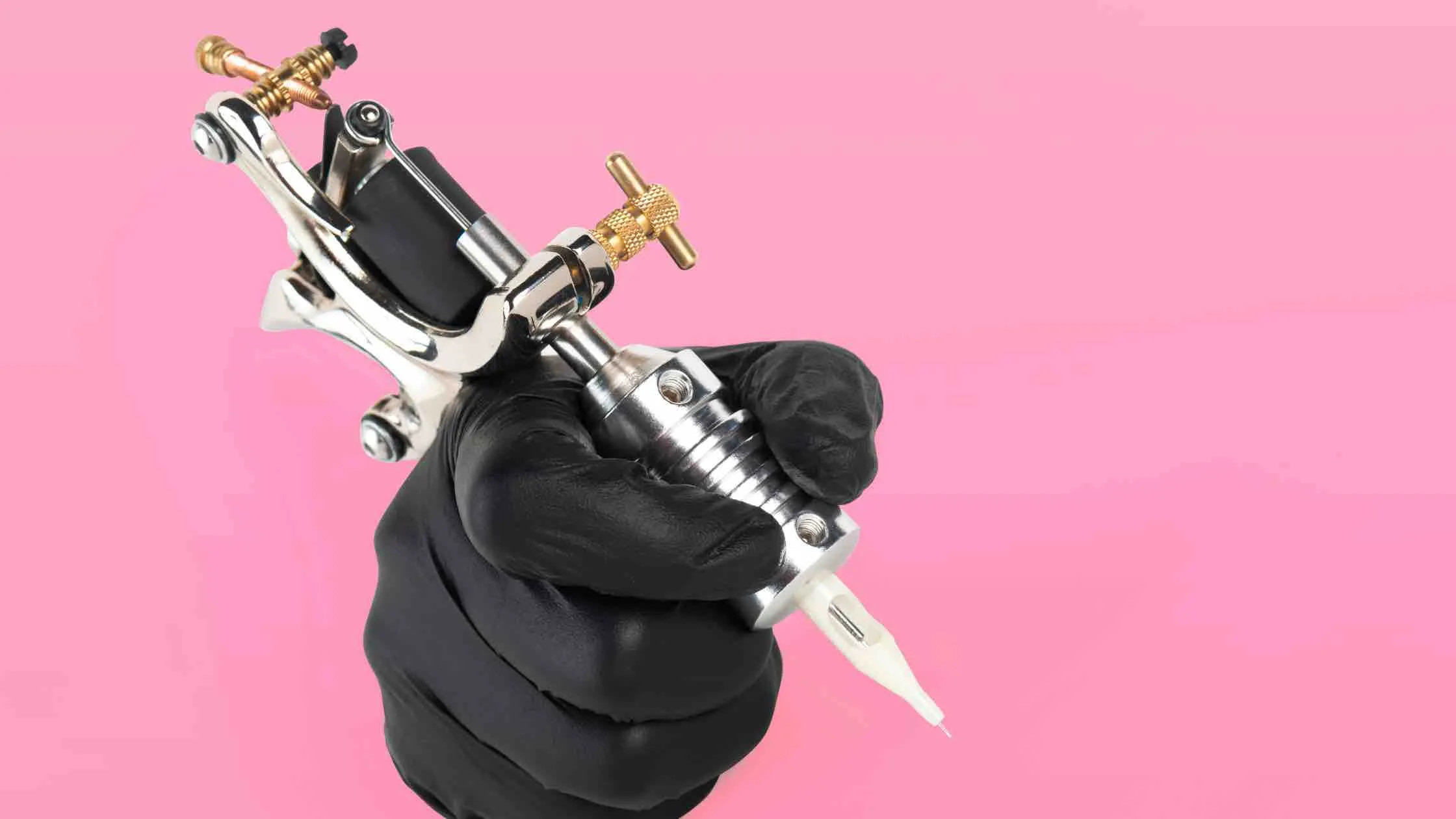Tattoos in the medical field are generally acceptable, but it’s crucial to understand the specific policies of your workplace regarding body art and personal expression. At tattooat.com, we provide insights into navigating tattoos in various professions and ensuring you can express yourself while adhering to professional standards. Let’s explore common tattoo policies, cover-up tips, and how to maintain a professional image with body ink, emphasizing self-expression, individuality, and professional image.
1. Are Tattoos Acceptable in the Medical Field?
Yes, tattoos are generally acceptable in the medical field, but it largely depends on the specific employer and their policies. While the American Nursing Association (ANA) doesn’t have specific rules about tattoos, many healthcare facilities allow small, non-offensive tattoos to be visible.
The key is “non-offensive.” Most medical facilities prohibit tattoos displaying offensive imagery, violence, or anything discriminatory. What constitutes “offensive” can be subjective, making it essential to understand your employer’s guidelines. It’s always wise to check with your supervisor or HR department to clarify the specific rules regarding tattoos in your workplace.
2. What Are Common Tattoo Policies in Healthcare?
 healthcare professional tattoo
healthcare professional tattoo
Common policies for tattoos in the medical field include guidelines on visibility and content. While there are no federal laws prohibiting discrimination based on body art, employers can set their own rules. According to a TeamStage study, over 40% of people find tattoos inappropriate in the workplace, while only 4% of tattooed individuals feel discriminated against. Here’s a summary of typical tattoo policies:
| Policy Category | Description |
|---|---|
| Offensive Content | Tattoos depicting violence, hate speech, or offensive imagery must be covered at all times. |
| Placement | Restrictions often apply to tattoos on the neck, face, or collar, requiring them to be covered. |
| Piercings | Visible body piercings, especially on the face (nose, lips), may need to be removed or concealed during work hours. |
| Coverage Methods | Tattoos can be covered using long-sleeve scrubs, medical tape, or makeup specifically designed for tattoo concealment. |
| Size & Taste | Small, tasteful tattoos may be permitted, but the employer retains the final say on what’s acceptable, balancing self-expression with professionalism. |
3. How Can I Cover Up My Tattoos at Work?
There are several effective ways to cover up tattoos while maintaining a professional appearance in the medical field. Fortunately, numerous options are available, and some companies even cater to tattooed healthcare professionals.
- Ink Armor Sleeves: Companies like Tat2X offer high-quality cover-up sleeves designed to comply with “no visible tattoo” policies. These sleeves come in various skin tones and sizes, ensuring a comfortable and discreet fit.
- Concealing Makeup: Professional tattoo-concealing makeup is an excellent option for smaller tattoos or those in hard-to-cover areas like behind the ears, hands, or fingers. Brands like Dermablend provide full-coverage makeup that can effectively hide tattoos without smudging or fading.
- Appropriate Clothing: Wearing long-sleeve shirts or scrubs is a simple way to cover arm tattoos. Choose breathable fabrics to stay comfortable throughout your shift. You can also use medical tape for smaller tattoos.
 tattoo hand
tattoo hand
4. Why Are Tattoos Becoming More Accepted in Healthcare?
Tattoos are increasingly viewed as a form of self-expression and individuality, leading to greater acceptance in various professions, including healthcare. The stigma around tattoos has diminished significantly as more people embrace body art.
Employers often recognize that a person’s tattoos do not affect their ability to provide quality care. Many facilities now focus on an employee’s skills, experience, and professionalism rather than their appearance. This shift reflects a broader societal change towards valuing individuality and personal expression.
5. What Should I Do If My Tattoo Is Causing Issues at Work?
If your tattoo is causing issues at work, take proactive steps to address the situation professionally and constructively. First, thoroughly review your workplace’s policies on tattoos and body art to ensure you understand the guidelines.
- Communicate with Your Supervisor: Discuss your concerns with your supervisor or HR department to understand their specific expectations. Open communication can often lead to a mutually acceptable solution.
- Explore Accommodation Options: If covering your tattoo is challenging, discuss possible accommodations with your employer. This could include wearing specific clothing or using alternative cover-up methods.
- Consider Tattoo Removal: As a last resort, if your tattoo is significantly hindering your career prospects, you might consider safe tattoo removal services. Consult with a qualified dermatologist or tattoo removal specialist to explore your options.
6. How Can Tattooat.com Help Me Navigate Tattoos in the Workplace?
Tattooat.com is your go-to resource for navigating tattoos in the workplace, providing inspiration, resources, and guidance to help you express yourself professionally. Our website offers:
- Extensive Tattoo Design Gallery: Explore a vast collection of tattoo designs to find art that resonates with your personal style, ensuring your next tattoo aligns with your professional image.
- Directory of Talented Tattoo Artists: Find skilled tattoo artists in your area who can create tasteful and appropriate designs for the workplace.
- Informative Articles and Guides: Access expert articles on tattoo aftercare, workplace policies, and tips for covering tattoos, helping you stay informed and prepared.
At tattooat.com, we understand the importance of expressing your individuality while maintaining a professional image. Let us help you navigate the world of tattoos with confidence and style.
7. What Are the Legal Considerations Regarding Tattoos and Employment?
While there are no federal laws specifically prohibiting discrimination based on tattoos, some legal considerations can arise in the context of employment. Employers have the right to set dress code and appearance standards that may include tattoo policies.
- Reasonable Accommodation: In some cases, employees may request reasonable accommodation for religious or medical reasons related to their tattoos. Employers are generally required to consider these requests unless they pose an undue hardship on the business.
- Discrimination: If a tattoo policy is applied inconsistently or in a discriminatory manner (e.g., targeting specific groups), it could potentially lead to legal challenges.
- State Laws: Some states or local jurisdictions may have laws protecting individuals from discrimination based on appearance, which could include tattoos.
It’s essential for both employers and employees to be aware of these legal considerations and to ensure that tattoo policies are applied fairly and consistently.
8. Can My Employer Refuse to Hire Me Because of My Tattoos?
Yes, in many cases, an employer can refuse to hire you because of your tattoos, especially if the tattoos violate company policy or are deemed offensive. Since there are no federal laws protecting against tattoo-based discrimination, employers have significant leeway in setting appearance standards.
However, it’s crucial for employers to apply these policies consistently and non-discriminatorily. If a tattoo policy is used as a pretext for discrimination based on race, religion, gender, or other protected characteristics, it could be illegal.
9. What if My Tattoo Has Religious or Cultural Significance?
If your tattoo has religious or cultural significance, you may have additional rights and protections in the workplace. Title VII of the Civil Rights Act of 1964 prohibits discrimination based on religion, which can include religious practices related to tattoos.
- Religious Accommodation: Employers are generally required to provide reasonable accommodation for religious practices, unless doing so would pose an undue hardship on the business. This could include allowing you to display a religiously significant tattoo or providing alternative ways to cover it.
- Cultural Significance: Similarly, if your tattoo has cultural significance, you may be able to argue for accommodation based on cultural identity and expression.
It’s essential to communicate the religious or cultural significance of your tattoo to your employer and to explore potential accommodations that would allow you to honor your beliefs while meeting workplace expectations.
10. Are There Any Professions Where Tattoos Are More Accepted?
Yes, tattoos are generally more accepted in creative fields, such as art, music, and fashion, as well as in industries that value individuality and self-expression. In these professions, tattoos may even be seen as a form of personal branding or a way to stand out from the crowd.
Additionally, some healthcare settings, such as those serving younger or more diverse populations, may be more accepting of tattoos. However, it’s always essential to be aware of the specific policies and expectations of your employer, regardless of the industry.
In conclusion, while navigating tattoos in the medical field requires awareness and adaptability, it’s entirely possible to express yourself through body art while maintaining a professional image. Tattooat.com is here to support you with inspiration, resources, and expert guidance every step of the way.
FAQ: Tattoos in the Medical Field
1. Can nurses have visible tattoos?
Yes, nurses can have visible tattoos, but it depends on the employer’s policies.
2. Are there restrictions on tattoo placement for healthcare workers?
Yes, restrictions often apply to tattoos on the neck, face, or collar.
3. What types of tattoos are generally prohibited in the medical field?
Tattoos depicting violence, hate speech, or offensive imagery are generally prohibited.
4. How can I cover up my tattoos while working as a nurse?
You can use Ink Armor sleeves, concealing makeup, or wear long-sleeve scrubs.
5. Can an employer refuse to hire me because of my tattoos?
Yes, in many cases, an employer can refuse to hire you because of your tattoos.
6. What should I do if my tattoo has religious significance?
Communicate the religious significance to your employer and explore potential accommodations.
7. Are there any legal protections for tattooed employees?
There are no federal laws specifically protecting against tattoo-based discrimination, but some state laws may offer protection.
8. Is tattoo removal a viable option if my tattoos are hindering my career?
Yes, tattoo removal is an option, but consult with a qualified specialist.
9. How is the increasing acceptance of tattoos changing workplace policies?
Employers are increasingly recognizing tattoos as a form of self-expression, leading to more flexible policies.
10. Where can I find inspiration and resources for navigating tattoos in the workplace?
Visit tattooat.com for extensive tattoo designs, talented artists, and expert articles.
Ready to explore tattoo designs, find talented artists, and access expert articles? Visit tattooat.com today and discover how you can express yourself professionally and confidently. Our address is 1825 SW Broadway, Portland, OR 97201, United States. Feel free to call us at +1 (503) 725-3000. We’re here to help you navigate the world of tattoos with style.